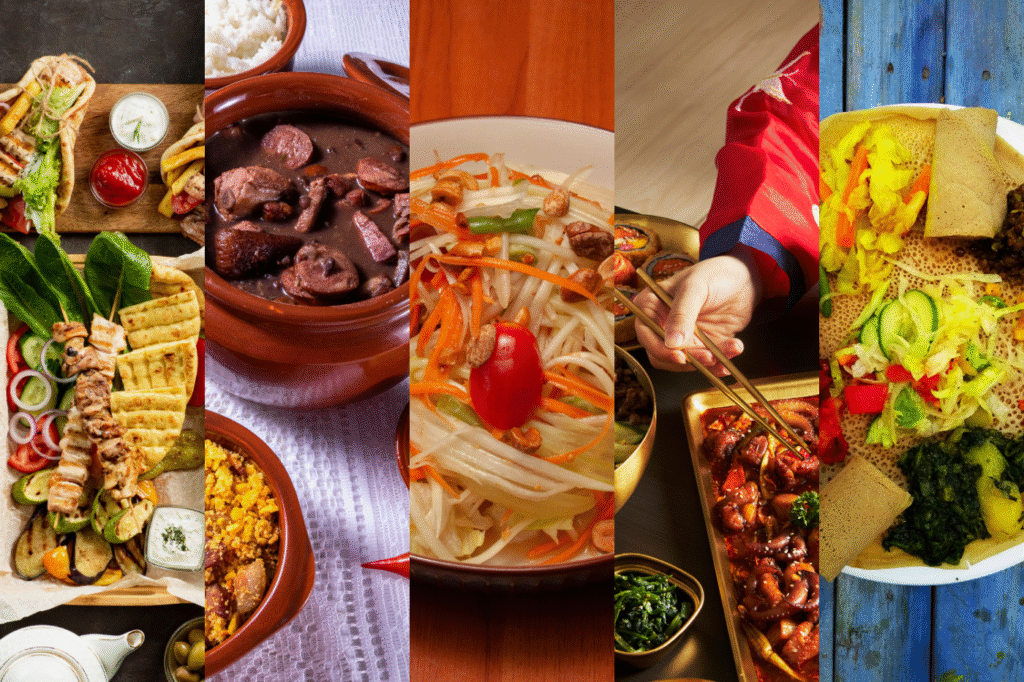A recent UK study has found that people who regularly enjoy international cuisines tend to have more tolerant attitudes toward immigrants. Researchers say trying foods from different cultures may encourage openness and understanding.
The study surveyed thousands of participants across the UK, examining their eating habits and social attitudes. Results showed a clear link between the consumption of diverse international foods and positive views on cultural diversity.
Experts suggest that exposure to global flavors can expand a person’s cultural awareness. Experiencing different culinary traditions may foster empathy and curiosity, which can translate into more inclusive attitudes in everyday life.
The research highlights that enjoying international dishes is not only a matter of taste but also a potential tool for social cohesion. People who regularly eat foods from other countries were found to be more accepting of immigrants and more supportive of multicultural communities.
Social psychologists involved in the study noted that food can act as a cultural bridge. When people try dishes from other countries, they often learn about the culture and traditions behind them. This familiarity may reduce stereotypes and increase understanding.
The study also found that individuals who eat international cuisine tend to be more adventurous in other aspects of life. This openness can influence their willingness to embrace diversity in social and professional settings.
Researchers emphasized that the findings do not suggest a causal relationship but indicate a strong association between food habits and social attitudes. Regular exposure to international cuisines correlates with higher levels of tolerance and cultural awareness.
Cultural diversity in food offers an accessible way for people to connect with global communities. From street food markets to restaurants, tasting dishes from around the world can broaden perspectives and promote acceptance.
The study’s authors encourage educational programs and community events that introduce people to international foods. These initiatives may strengthen social bonds and foster understanding between different cultural groups.
Participants in the survey reported that sharing meals from other countries often leads to conversations about culture, traditions, and personal experiences. These interactions contribute to greater empathy and reduce biases.
The research has implications for policymakers and social organizations aiming to promote inclusion. Encouraging cultural exchange through food can complement broader strategies to build tolerant and cohesive communities.
Experts say that enjoying international cuisine is a simple yet effective way to cultivate openness. Food becomes more than nourishment; it serves as a gateway to understanding and appreciating cultural differences.
By exploring global flavors, people may develop a deeper appreciation for diversity, enhancing tolerance toward immigrants and contributing to a more inclusive society. The study suggests that small everyday choices, like trying a new dish, can have meaningful social impacts.



